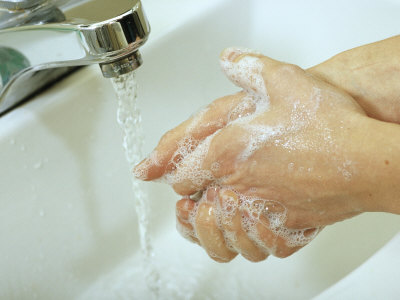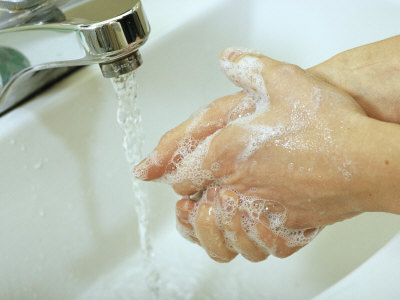 Keeping hands clean through improved hand hygiene is one of the most important steps we can take to avoid getting sick and spreading germs to others. Many diseases and conditions are spread by not washing hands with soap and clean, running water. If clean, running water is not accessible, as is common in many parts of the world, use soap and available water. If soap and water are unavailable, use an alcohol-based hand sanitizer that contains at least 60% alcohol to clean hands.
Keeping hands clean through improved hand hygiene is one of the most important steps we can take to avoid getting sick and spreading germs to others. Many diseases and conditions are spread by not washing hands with soap and clean, running water. If clean, running water is not accessible, as is common in many parts of the world, use soap and available water. If soap and water are unavailable, use an alcohol-based hand sanitizer that contains at least 60% alcohol to clean hands.
Tag: hand washing
Hand Washing: Reducing the Risk of Common Infections
 Is it important to wash your hands?
Is it important to wash your hands?
Simply put, yes. Hand washing is the single most effective way to prevent the spread of infections. You can spread certain “germs” (a general term for microbes like viruses and bacteria) casually by touching another person. You can also catch germs when you touch contaminated objects or surfaces and then you touch your face (mouth, eyes, and nose).
“Good” hand washing techniques include using an adequate amount of soap, rubbing the hands together to create friction, and rinsing under running water. The use of gloves is not a substitute for hand washing.
via Hand Washing: Reducing the Risk of Common Infections : OSH Answers.
